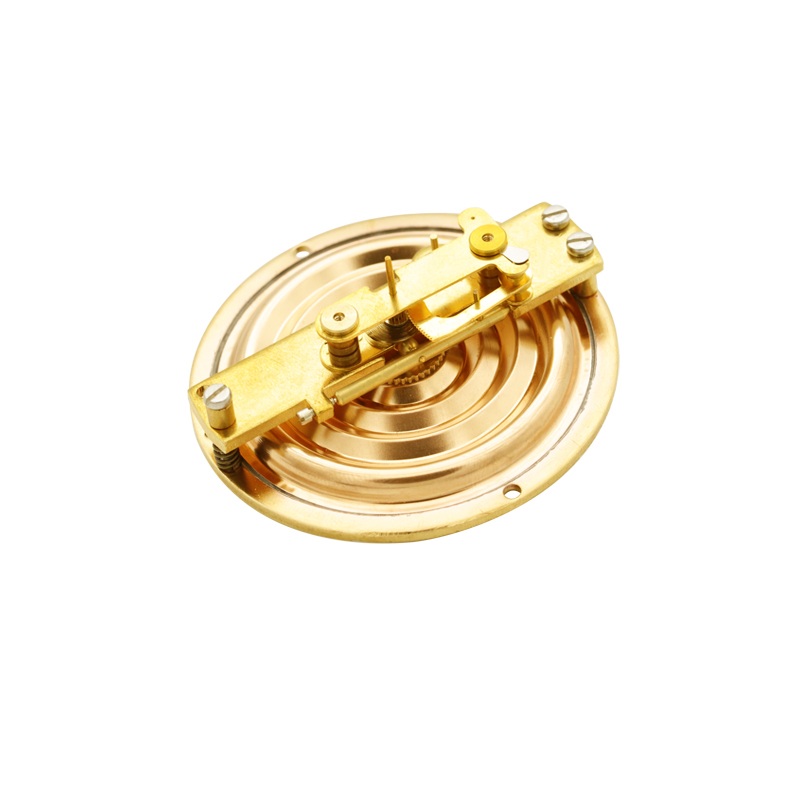
12 月 . 11, 2024 01:50 Back to list
Diaphragm Seal Pressure Gauge Distributors for Precise Measurement Solutions
The Importance of Diaphragm Seal Pressure Gauges Choosing the Right Supplier
In various industries, precise measurement of pressure is vital for maintaining efficient operations and ensuring safety. Pressure gauges are instrumental in achieving this goal, and one of the most reliable types of pressure gauges is the diaphragm seal pressure gauge. This article explores their significance, applications, and the importance of selecting a reputable supplier.
Understanding Diaphragm Seal Pressure Gauges
Diaphragm seal pressure gauges are specialized instruments designed to measure the pressure of fluids (liquids or gases) in processes where direct contact with the sensing element may lead to contamination or damage. The diaphragm seal acts as a barrier between the fluid and the pressure sensing element, therefore protecting the gauge and ensuring accurate readings.
This type of pressure gauge consists of a flexible diaphragm that deflects under pressure, causing a corresponding movement in the gauge mechanism. This design not only provides effective isolation from harsh environments but also allows for the measurement of corrosive, viscous, or even crystalline fluids.
Key Advantages of Diaphragm Seal Pressure Gauges
1. Protection Against Contamination In industries such as food and beverage, pharmaceuticals, and chemicals, it is essential to avoid any contamination of products. Diaphragm seal pressure gauges prevent direct contact between the process fluid and the measuring element, ensuring integrity.
2. Enhanced Durability These gauges can withstand high pressures and extreme temperatures, making them ideal for demanding industrial applications. The diaphragm materials can be selected to resist corrosive substances, further enhancing their lifespan.
3. Minimized Maintenance With a diaphragm seal, the need for regular cleaning and maintenance is reduced. This lowers the operational downtime, making processes more efficient.
4. Versatility Diaphragm seal pressure gauges are versatile and can be used in various applications, including oil and gas, water treatment, HVAC systems, and many more. They can handle a wide range of pressure conditions and fluid types.
Applications Across Industries
pressure gauges with diaphragm seals supplier

Diaphragm seal pressure gauges find applications across numerous sectors. In the chemical industry, they can measure the pressure of corrosive fluids without compromising the integrity of the process. In the food industry, they help ensure hygienic conditions by preventing contamination. Furthermore, in oil and gas, they can measure pressure in both upstream and downstream processes while withstanding harsh environmental conditions.
Selecting the Right Supplier
Choosing the right supplier for diaphragm seal pressure gauges is crucial for ensuring quality and reliability. Here are some factors to consider
1. Experience and Reputation Look for suppliers with a strong background in manufacturing and supplying pressure gauges. Established companies are likely to provide high-quality products and excellent customer service.
2. Product Range A reliable supplier should offer a variety of diaphragm seal pressure gauges to meet different application needs. This includes different sizes, materials, and pressure ranges.
3. Customization Options Depending on the specific requirements of your application, you may need customization. A good supplier should be willing to work with you to create a gauge that fits your unique needs.
4. Certifications and Standards Ensure that the supplier's products meet relevant industry standards and certifications. This could include ISO standards or specific certifications for hazardous environments.
5. Technical Support and After-Sales Service After purchasing, it's important to have support for installation, calibration, and maintenance. Choose a supplier known for its excellent after-sales service.
Conclusion
Diaphragm seal pressure gauges are essential instruments for accurate pressure measurement in various industrial applications. Their unique design provides protection against contamination and enhances durability, making them suitable for harsh environments. When selecting a supplier for these crucial instruments, consider their experience, product range, customization options, certifications, and support services. By partnering with a reputable supplier, industries can ensure reliability and accuracy in their pressure measurement processes, ultimately enhancing safety and efficiency.
-
HD Fire Pressure Gauges High Accuracy & Durable Solutions
NewsMay.28,2025
-
Custom Singles Capsule Systems Top Exporters & Factories
NewsMay.28,2025
-
Piston-Style Differential Pressure Gauges Precision & Durability
NewsMay.28,2025
-
WIKA Differential Pressure Gauge 700.04 High-Accuracy Industrial Measurement
NewsMay.28,2025
-
Precision Differential Pressure Gauge Factory Custom Solutions & OEM Services
NewsMay.27,2025
-
Pressure Diaphragm Capsule Elements High-Accuracy & Durable Solutions
NewsMay.27,2025
